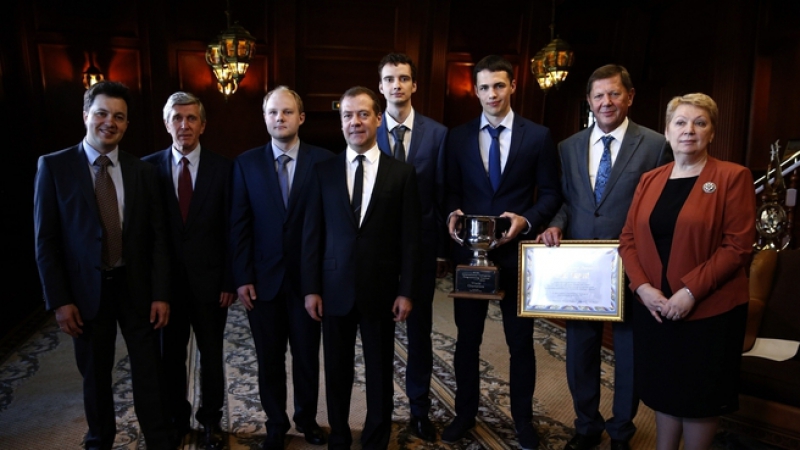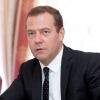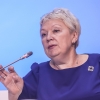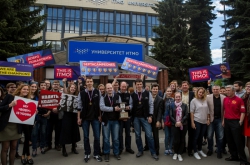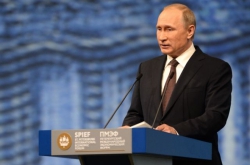Vladimir Smykalov, Ivan Belonogov and Ilya Zban – ACM ICPC's champions and students at ITMO’s Computer Technologies Department – were welcomed at Konstantinovsky Palace by Russian Prime Minister Dmitry Medvedev and Minister of Education and Science Olga Vasilieva.
Mr. Medvedev awarded the university’s representatives with an honorary government diploma for their years of prolific scientific and educational work. The Prime Minister noted that the University has long ago secured its status as a leader in IT education that trains highly qualified experts in the field of informational technology. He spoke with the talented programmers and asked them about what makes ITMO University’s students so successful.
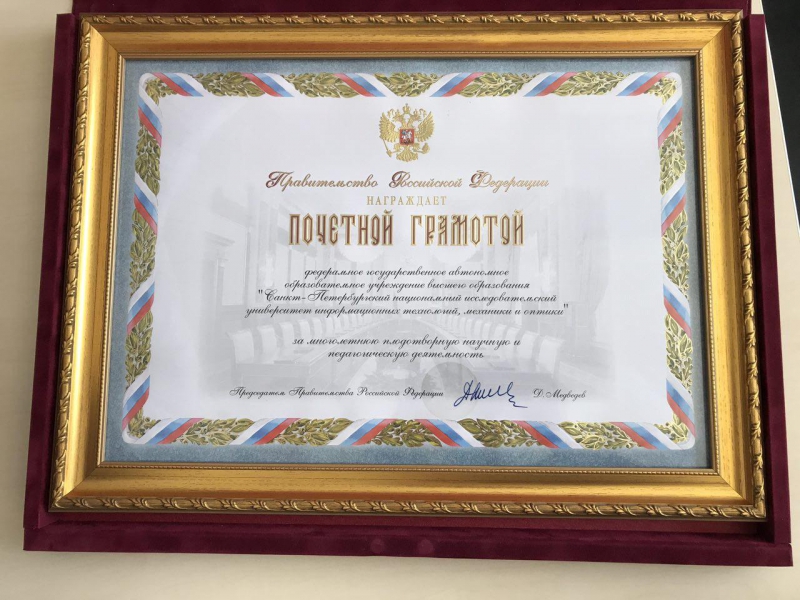
“Well, at the very least, you need to know everything” – they joke, – “but, jokes aside, a lot depends on one's will and determination”.
The Russian programmers’ achievements, however, are not limited by just student championships, note ITMO officials, mentioning the Kotlin programming language. Created by a team led by ITMO alum Andrey Breslav, it has become an official language of development for Android. Mr. Medvedev noted that it is achievements like these that bring fame to Russia and St. Petersburg in particular. Thanks to this language more people will learn of the small island in Gulf of Finland which gave name to the product.
Another topic of discussion at the meeting was the ecosystem created at ITMO University to help the development of young talents, as well as plans for its future development. This year, ITMO University staff were awarded a Government Prize in Education for developing a complex procedure for selecting and training highly qualified world-class personnel in the field of Information Technologies. The champions also asked the Prime Minister to pick a name for ITMO University’s planned innovation center of science and technology that will be located in the satellite city of Yuzhny. Both the Prime Minister and Minister of Education picked two proposed titles as their favorites: ITMO HIGHPARK and PUSHKINNO.
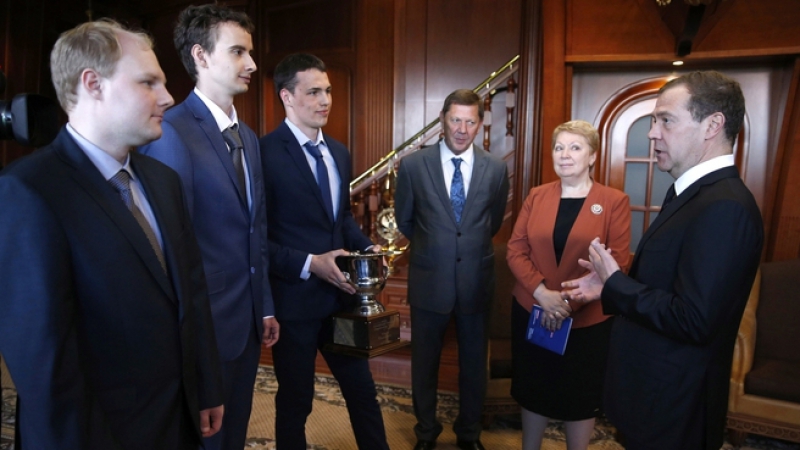
This is not the first time that the country’s top officials congratulate the champions and prize winners of the International Programming Contest. Last year, the champions and silver prize winners (St. Petersburg State University and ITMO University’s teams, respectively) met with Russian President Vladimir Putin. The first non-classical university’s teams also met with the President in 2004 and 2012. In addition, ITMO University’s programmers met multiple times with St. Petersburg Governor Georgy Poltavchenko. The Northern Capital can, deservedly, be referred to as the world’s IT Capital: for six years in a row, the ACM ICPC Champion Cup has not left the city, only switching locations between ITMO University and St. Petersburg State University.
“Our students’ latest victory at the world’s biggest programming contest and Google’s appointment of Kotlin language as an official language of app development for Android are clear signs of Russia’s competitive abilities and a serious claim for the leading position in the global IT industry,” – comments Rector Vladimir Vasilyev.
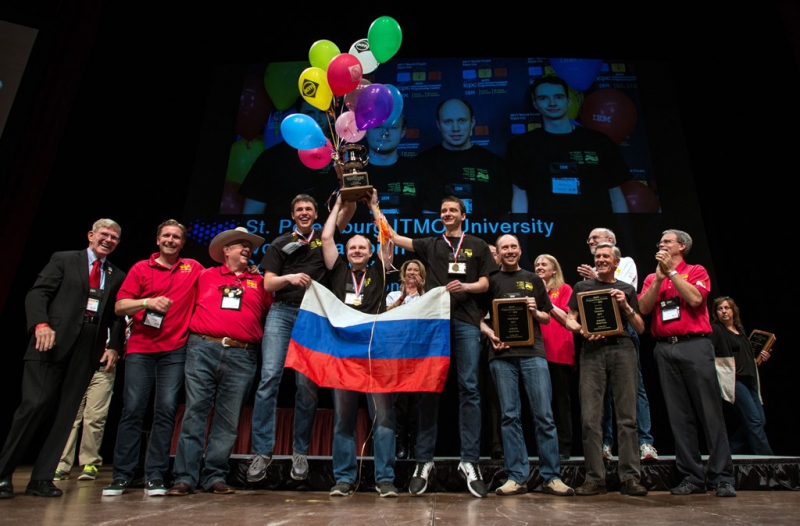
Students of the Computer Technologies Department Vladimir Smykalov, Ivan Belonogov and Ilya Zban have become the world champions in collegiate programming on May 24 in Rapid City, SD, USA. This marks ITMO University’s seventh win in the prestigious contest – a record that has not been beaten by any other university. The team has managed to succeed over their main competitors – the select teams from University of Warsaw, Seoul National University, St. Petersburg State University and Moscow Institute of Physics and Technology.
ITMO University has first won the ACM ICPC World Cup in 2004. Since then, it has reconfirmed its status as world champion several times. Since 2012, it has won four times; in those years, the university’s team was coached by Andrey Stankevich, Associate Professor at Computer Technologies Department. During the previous contest he was awarded the prestigious ACM ICPC Senior Coach Award, given to coaches whose teams participate in the contest finale for 15 years.
What makes the contest unique is that the participants solve practical problems that call not only for basic knowledge of algorithms, but also for specific knowledge of various forms of programming. Teams consist of three members and it is important for players to know how to cooperate and time-manage. After all, speed matters: for example, during this year’s contest the ITMO University’s programmers solved 10 out of 12 problems, but managed to do that in less time than their competitors.
